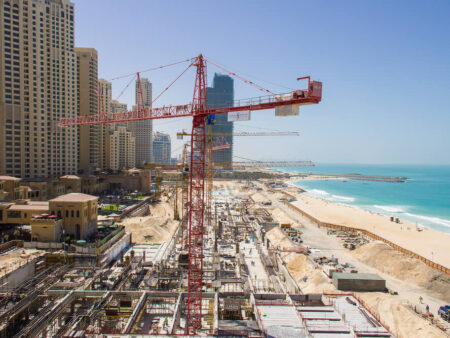

Canadians are gamblers. All you need to do is wander the streets of any community – big or small – and you won’t have to go far to find either a bingo hall, casino, or lottery booth. All three are essentially ways of life and rites of passage to the average Canuck. They are so commonplace that tonight there is likely a bingo game or meat draw planned at a local seniors hall, legion, or community center to support some cause or charity.
Online poker is just about as established in the Canadian culture as curling, hockey, and snowmobiling. The world poker stage has also seen its share of Canadian players who have taken home some substantial paychecks. Professional poker players from Canada include Kristen Bicknell, Daniel Negreanu, Mike McDonald, Jaime Staples, and Mike Watson to name a few. We can’t forget to mention Quebec’s Jonathan Duhamel. He won the 2010 edition of the World Series of Poker earning $8.9 million.
A Hands-Off Approach To Governing
As is somewhat typical in Canadian politics, the federal government has adopted a relaxed, somewhat um, Liberal stance on online poker. Gambling in all forms in Canada is regulated by the Canadian Criminal Code (CCC) which is rather vague when it comes to online gambling. With this in mind, the Canadian government has left each province and territory in the country to self-govern gambling. This is done by “gaming commissions” in each province and territory. What makes this interesting is that there is no blanket regulation. This means that rules set in place in British Columbia will likely differ from those in Alberta. It also means that while one province may have legalized online lottery, another may not have done so. That being said, as diverse as the regulating landscape may be, Canadians have many gambling options available to them, regardless of where they live in the country. This also means that no deposit bonus codes in Canada are also common.
Ontario Blazes A New Trail In 2022
The province of Ontario, Canada’s most populous region, has taken a proactive approach this year regarding online poker. With large, well-known international brands eager to crack the growing Canadian gambling market, the Ontario gaming authority snapped into action quickly by adopting a fenced-in market model. This means that players who sign up for online poker accounts through the Ontario-approved operators would be competing against other players also based in Ontario. In other words, Ontario gamblers will not be playing online poker with players outside of Ontario, Canada, or North America. As restrictive as that may sound, it is important to point out that the very same concept has been in place in many US states. It has also been very successful in those states.
The Line Up Is Growing
It was in April of 2022 when the Alcohol and Gaming Commission of Ontario welcomed the launch of BetMGM within their borders. The platform used by BetMGM is a subsidiary of the partypoker US Network which also includes the popular Borgata Poker skin in the US. Other operators lined up to get into Ontario include GGPoker, PokerStars, and other big names in the online poker industry. Soon after BetMGM went live, the province welcomed 888poker which brought not just online poker but includes online casino games and sports betting. Expect other provinces and territories to monitor the situation in Ontario for the balance of 2022 before opening the doors to online poker operators. You can safely bet that the activity in Ontario has sparked interest in the other provinces and territories that have been waiting for this to happen.
The “Other” Side of the Online Poker Chip
If you have spent any time searching for online poker sites, you probably already know that several global operators have accepted Canadian players. Although the CCC regulations regarding online gambling are vague at best, technically speaking, these sites are operating illegally in Canada. If they do not have a license to operate in Ontario or any other part of Canada, they are illegal. But why do Canadians flock to them anyway? Well, we mentioned earlier that the federal government has a hands-off approach to online gambling. This means that you are more likely to get pulled over for a broken taillight than for playing online poker at a US-based gaming site. However, each loonie spent gambling at the US or global site is money leaving Canada and that is the issue that supports Canadian licensing.
Safety First – How Safe Online Poker Is In Canada
Online poker in Ontario is regulated by iGaming Ontario (iGO), which is under the umbrella of the AGCO. The provincial gambling authority created iGO specifically to address all online gambling opportunities with a particular focus these days on the expansion taking place this year. Players unfamiliar with online gambling may question how safe the internet is for any form of gaming activity. There are a few things to watch for that will signal to you whether or not the site you have entered is safe for gambling. The first thing you should look for is a gaming license. Properly regulated sites will display this information prominently. Gaming licenses held by sites that meet and maintain standards and regulations that keep gaming safe for all participants.
Second, there should be a registration process that requires a photo ID to verify players are legitimate and of age to gamble legally. Banking options should include all common choices that are known to be secure and payouts must be made within a reasonable time frame. To find out more about an online poker site before registering, check for online reviews.
Final Thoughts
Canada is quite progressive as far as gambling is concerned. Even though the Canada Criminal Code has grey area regarding internet gaming, at least one province (Ontario) has welcomed online poker as a gambling option. Expect other provinces and territories to follow that example. Because Canadians are big on gambling, it should come as no surprise that online poker is being welcomed with open arms in the Great White North.



